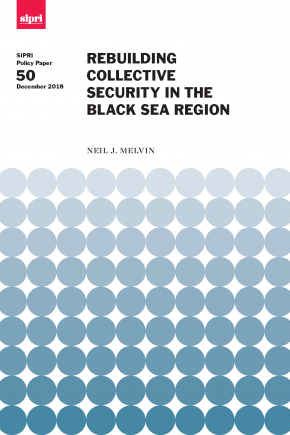Rebuilding Collective Security in the Black Sea Region
Armed clashes between Russia and Ukraine in the Kerch Strait in November 2018 are a timely reminder of the fragile nature of security in the Black Sea. Since Russia’s annexation of Crimea in 2014 and the onset of conflict in eastern Ukraine, tensions have risen as Russia has continued to build up its regional armed forces and the North Atlantic Treaty Organization has significantly strengthened its commitment to the Black Sea. While neither side is seeking a direct military confrontation, the risks from military accidents and unintended clashes, misperception and miscalculation are clear.
Given the centrality of the Black Sea region for security in Europe, Eurasia, the Balkans and the Middle East, there is an urgent need to address the sources of militarization, insecurity and confrontation in the region. This SIPRI Policy Paper highlights a number of initial steps to begin to rebuild collective security in the Black Sea region.
1. Introduction: The Black Sea as a security space
2. The evolution of the Black Sea as a security space
3. The post-2014 Black Sea security environment
4. Threat perceptions and security strategies in the Black Sea region
5. The risks of military confrontation in the Black Sea region
6. Conclusions and steps forward

